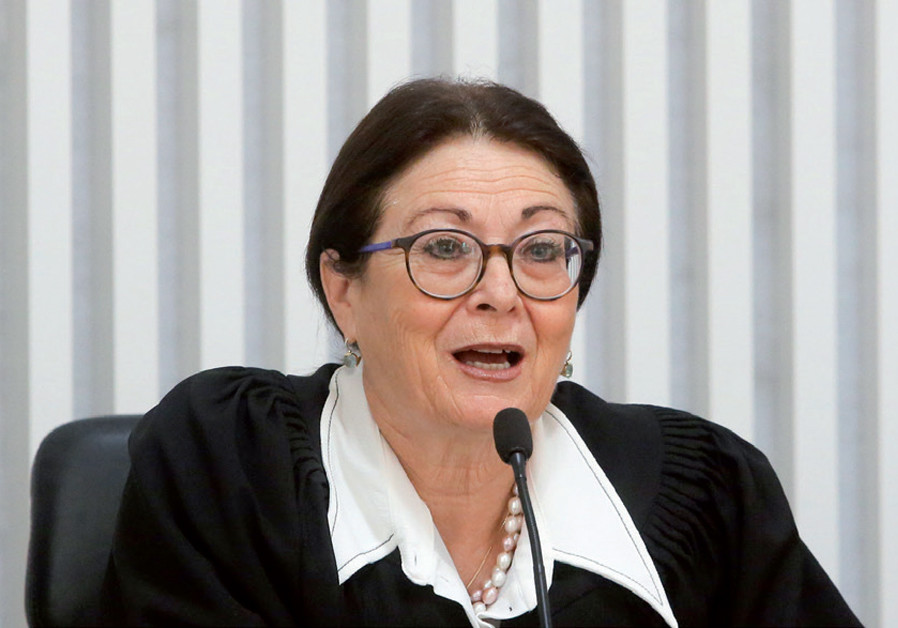 HIGH COURT APPROVES ALEXEI BURKOV’S EXTRADITION TO U.S
HIGH COURT APPROVES ALEXEI BURKOV’S EXTRADITION TO U.S
YONAH JEREMY BOB
Last week, the Russian hacker and Naama Issachar had both requested the High Court to block the hackers’ extradition to the US.

The High Court of Justice approved on Sunday the extradition of a Russian hacker to the US, rejecting his request to be extradited or to serve his potential jail sentence in Russia.
Last week, the Russian hacker and an Israeli woman in a Russian prison for cannabis possession had both requested the High Court to block the hackers’ extradition to the US.
The family of Naama Issachar, serving a seven-and-a-half-year sentence in Russia, had filed their petition two weeks ago, while the hacker, Alexei Burkov, filed last week. Later last week, Issachar’s family had already withdrawn their petition.
These moves follow Acting Justice Minister Amir Ohana’s signing off on extraditing Burkov to the US for perpetrating cyber fraud and earlier rulings by the Jerusalem District Court and the Supreme Court to extradite him.
Generally, the petitioners oppose any extradition, but given the state of legal play, they were pushing for extradition to Russia in place of the US, and as part of a deal for Russia to return Issachar to Israel.
Israelis generally view Issachar as having violated the law, but that the violation was minor and that the heavy Russian jail sentence was a political move to try to press Israel to return Burkov to Moscow.
In a bizarre legal twist unique to the extradition process, though the Supreme Court already ordered Burkov’s extradition, he had a chance to try a redo after the justice minister signed the extradition order by addressing his petition to the same body, but in its capacity as the High Court of Justice.
Essentially the idea is that extradition has both a criminal and constitutional component and that the initial Supreme Court ruling addresses the criminal obstacles, while the later High Court ruling addresses any constitutional obstacles.
In theory, the High Court could have overturned the earlier Supreme Court ruling, and in fact, the High Court had frozen the extradition until it could issue a decision.
In practice, cases where the High Court vetoes an extradition that its – in their capacity as the Supreme Court – already approved, are extraordinarily rare.
The two main arguments that Burkov seemed to be basing the latest petition to the High Court on were: that earlier court decisions were to extradite him, but not necessarily to extradite him to the US over Russia, and that Burkov was not physically in the US.
In a classic extradition case, one person commits an individual crime in his home country and flees to a foreign country to escape the law.
Usually the criminal is in it for personal gain, and none of the governments involve particularly care what happens to the criminal.
If there is an extradition treaty between the country of origin and the country where the criminal fled, he is usually extradited back home, and if not, often not.
And then there is when diplomatic considerations break into the fold.
Here, Burkov has been on “extradition row” since 2015 when the US filed a serious and well-grounded evidentiary request for extraditing him to the US for perpetrating the cyber fraud scheme.
In the age of globalized crime, physically residing in a country is not required if the main harm of your criminal actions were felt in that country.
So normally his extradition to the US would be a done deal.
Russia’s harsh sentence of Issachar sparked speculation that Burkov has value to Moscow and might have been involved in cyber intelligence activities. Otherwise, it would be unclear why Russia would care if one citizen gets sent to jail for fraud.
There are many political reasons why Prime Minister Benjamin Netanyahu would want to please Russian President Vladimir Putin even if there might be few legal ones.
But ultimately the extradition was always expected to go through due to these legal arguments and because Israel would be even more concerned about upsetting the US by failing to extradite Burkov than it would be concerned about alienating Russia.
The High Court said that arguments to extradite Burkov to Russia or to have him serve his potential jail sentence there had no real legal basis.
